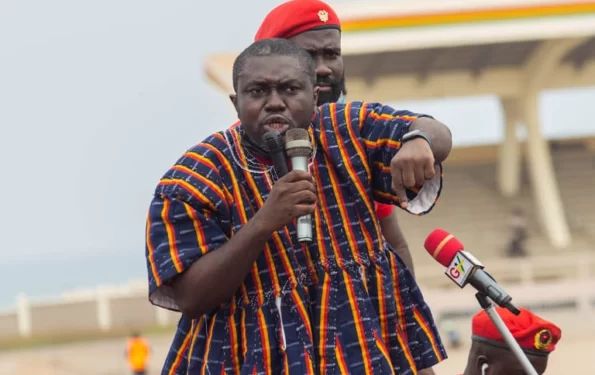Oliver Barker Vormawor, a prominent Ghanaian activist, has ignited a debate by asserting that the “Operation Recover All Loot” (ORAL) initiative, a flagship policy of the newly elected National Democratic Congress (NDC) government, holds greater significance for the nation than the highly touted Free Senior High School (Free SHS) program. Vormawor’s contention centers on the potential of ORAL to not only recoup misappropriated state assets but also to reshape the political landscape of Ghana. He argues that the successful implementation of ORAL could solidify the NDC’s position as the dominant political force for decades to come, while failure could lead to a significant erosion of public trust and potentially pave the way for the resurgence of political rivals.
The Free SHS program, introduced by the previous administration, has been a cornerstone of educational policy, aimed at providing free secondary education to all Ghanaian children. While acknowledging the program’s social benefits, Vormawor posits that ORAL addresses a more fundamental issue: the alleged plundering of public resources, which he believes undermines the very foundations of good governance and economic progress. He contends that reclaiming these assets is not merely a matter of financial recovery, but a symbolic act of restoring faith in the integrity of the state and holding those accountable who may have abused their positions of power for personal gain. This, he argues, is a prerequisite for sustainable development and the equitable distribution of resources, making it a more crucial policy priority than free secondary education.
Vormawor’s emphatic endorsement of ORAL is accompanied by a stark warning to the NDC government. He stresses the imperative of meticulous execution, cautioning that any missteps or perceived lack of transparency in the process could have severe political repercussions. He even alludes to his own ongoing legal battles, hinting at the possibility of renewed legal action against him if the initiative falters. This underscores the high stakes involved and the intense scrutiny under which the government will operate as it embarks on this ambitious endeavor. His statement implies that the success or failure of ORAL could significantly impact the future trajectory of his legal situation, suggesting a potential link between his ongoing case and the government’s handling of the recovery effort.
ORAL, a central campaign promise of the NDC, aims to recover assets allegedly misappropriated during the tenure of the previous administration. The initiative involves a dedicated committee tasked with gathering information and evidence related to potential financial irregularities and corrupt practices. This committee operates under the direct authority of President John Dramani Mahama, who is overseeing the establishment of the new administration. The mandate of the committee is to comprehensively investigate allegations of corruption, identify potentially recoverable assets, and prepare the groundwork for legal proceedings aimed at returning these resources to the state. The scope of the investigation encompasses a wide range of potential offenses, including embezzlement, bribery, and abuse of office.
Joyce Bawah Mogtari, Special Aide to President Mahama, has provided further insights into the operational framework of ORAL. She clarified that the committee’s primary function is to gather comprehensive information and prepare the necessary documentation to facilitate the recovery process. This crucial preparatory phase will continue until a new Attorney-General is appointed and assumes office. At that point, the accumulated evidence and findings will be transferred to the Attorney-General’s office, which will then be responsible for initiating any legal actions deemed appropriate. This delineation of responsibilities ensures a clear separation of powers and emphasizes the importance of due process in pursuing the alleged perpetrators of corruption.
Moghiri’s clarification underscores the transitional nature of the ORAL committee. Its role is not to prosecute or adjudicate cases but rather to lay the groundwork for future legal action by the Attorney-General’s office. This structured approach emphasizes the government’s commitment to a transparent and legally sound process for recovering potentially looted assets. The transition to the Attorney-General’s office will mark the beginning of a more formal legal phase, where the evidence gathered by the ORAL committee will be scrutinized and used to determine whether sufficient grounds exist to pursue legal action against individuals implicated in the alleged corruption. This phased approach aims to ensure the integrity and credibility of the entire recovery process.


